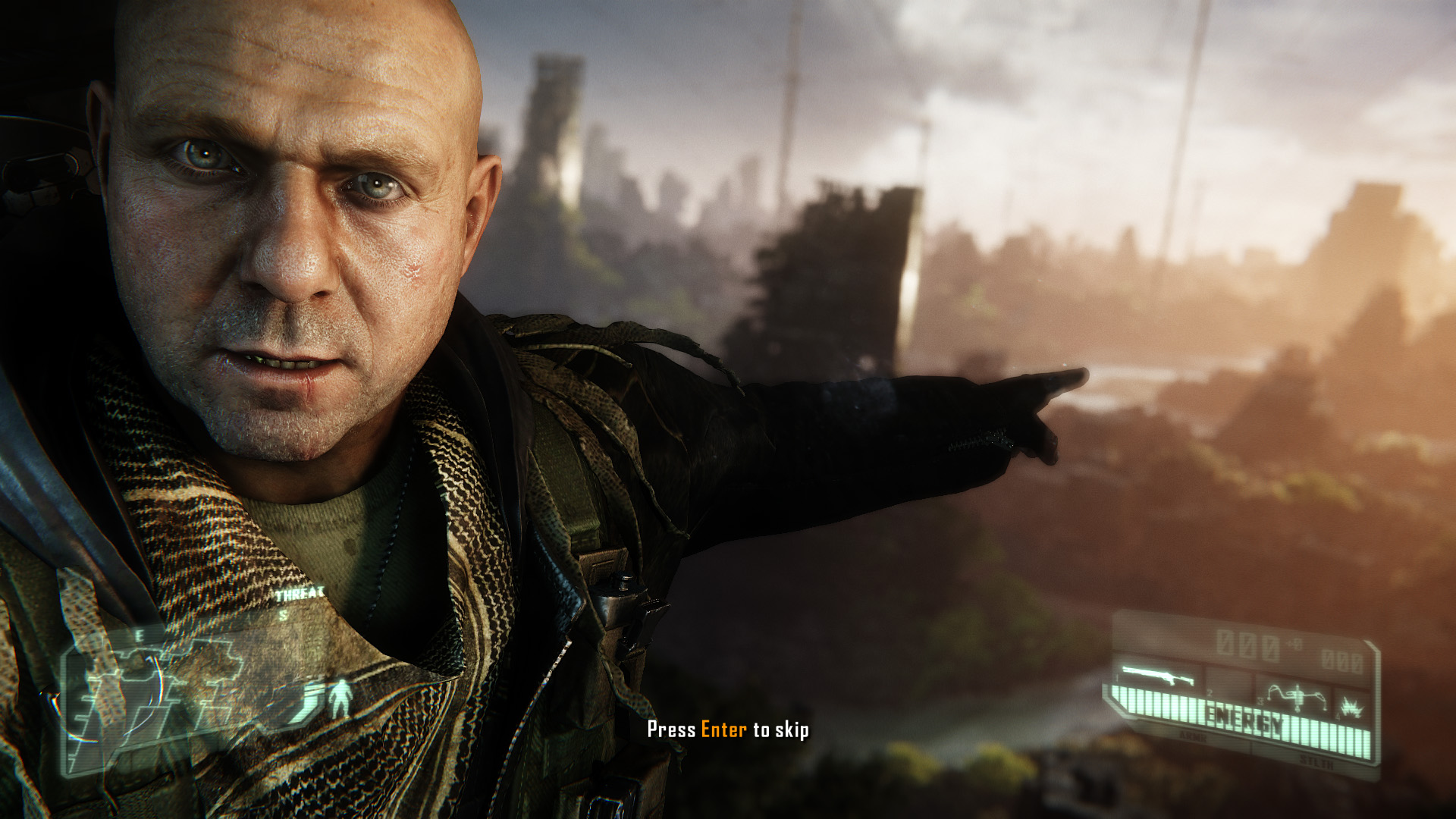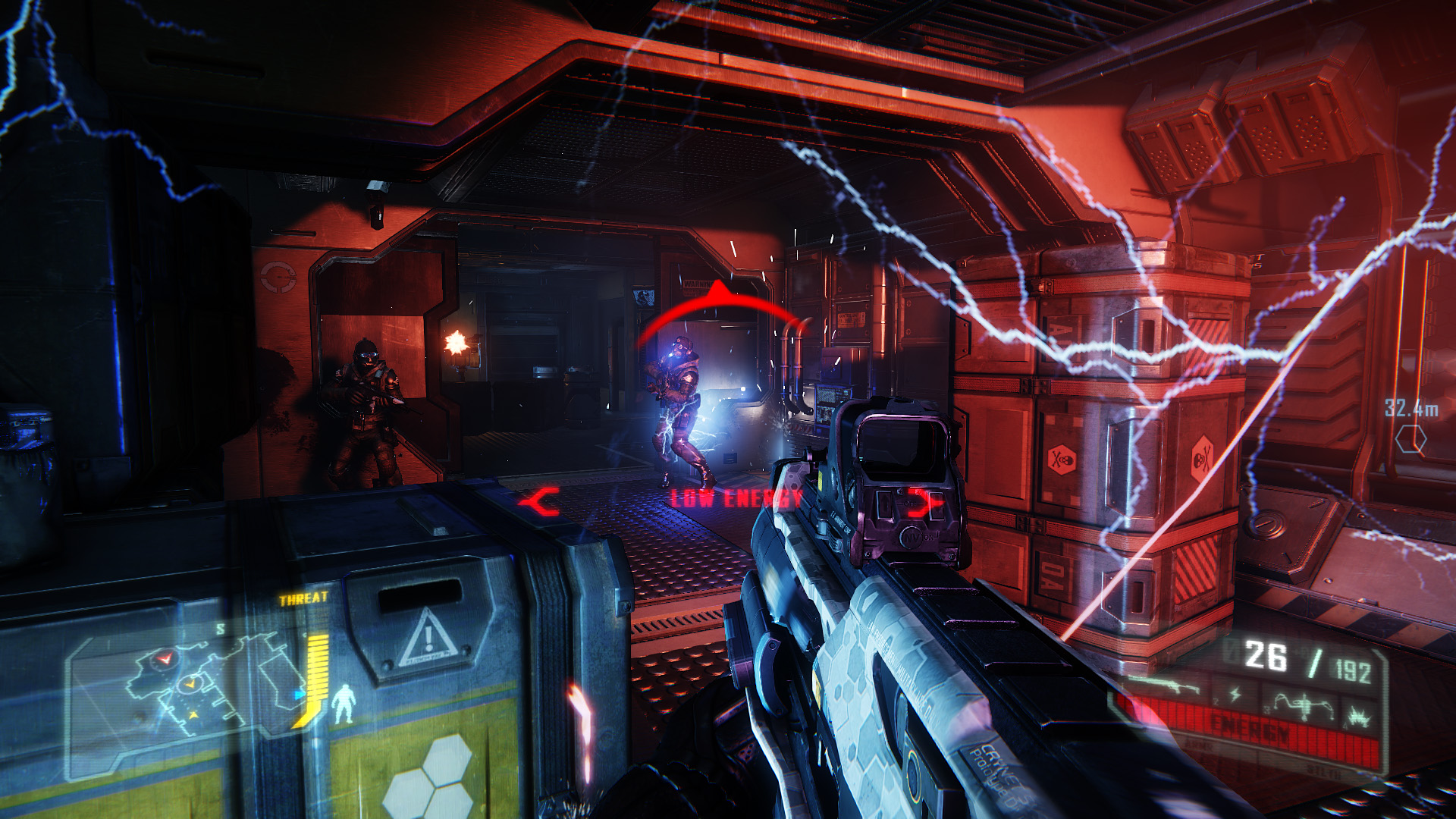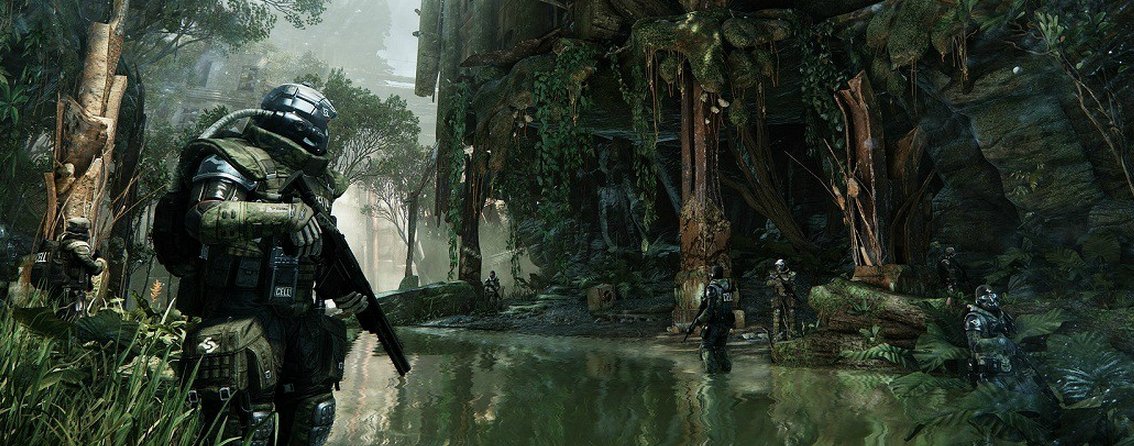
How to break what wasn't broken
Gone from the most recent series entries are the complex enemies, quick saving, the depth of movement, the massive organic environments, and even the fidelity of control over the suit. Sure, Crysis 3 features large spaces, but they’re often flat maps with one direction of attack. The physics system appears to be entirely absent—it’s not as if you’ll be able to shoot down trees in order to snipe people, much less throw chickens at them.
The sequels present sterile worlds with invincible trees and rigid structures. Enemies seem less intelligent; more moving targets with pathfinding than intelligent beings with decision making. In Crysis, I could fool the AI and misdirect it, using the game’s physics, my suit’s powers, and my guns to manipulate my way through a level. In Crysis, I was rewarded for my creativity—could I eliminate a target by collapsing a roof on him? Yes I could. In one level, I approached a base from the east the first time; the second, I got so lost that I wound up approaching it from the west.
So it’s strange, then, that Crytek would deliver less impressive games for its sequels. Crysis 3 has one particular huge, open level that’s… mostly just shallow water. It’s a flat, empty space peppered with the occasional hill, and it’s far from the only one in the game. These aren’t fun spaces to navigate.

The fidelity of control has diminished as well. You can’t lean around corners, can’t go prone to snipe. Options diluted. Experience is dulled. Maximum Strength is no longer a mode, but a contextual choice, meaning that you won’t be switching into it so you can punch down a wall, but can hold the spacebar to jump. Even if you could switch to it, of course, it’s not like it would matter, because so few objects retain the dynamic physics that make the original so great. Want to punch a wall so a building collapses on your enemies? Sorry. Can’t do that.
That sense of forward momentum, of always having an impact, as trees collapse and trucks explode and chickens are thrown through the air is lost. Now it feels as though the only progress made is in your body count.
Crysis is a game about things you can do, a game that asks “okay, where can shooters go from here?” and offered some interesting answers. Its sequels, unfortunately, put more emphasis on big spaces and shiny graphics, de-emphasizing the game world as a living space. Crysis simulates a reality to play in. Crysis 2 and 3, on the other hand, are more arcade-driven experiences. Their worlds do not exist as real spaces to be interacted with, but as arenas for combat. Their enemies are targets, not opponents.
Crysis 2 and 3 feel like games made by someone who played Crysis once on easy mode, failing to understand just how special the game was. In many ways, Crysis is perhaps the apex of the shooter’s mechanics; it’s a celebration of player freedom. Its sequels, in contrast, are a celebration of technology, curated experiences that inhibit player choice.
Keep up to date with the most important stories and the best deals, as picked by the PC Gamer team.
In a way, it makes sense—Crysis is a microcosm of the PC gaming experience. Everyone lauds it for its technical accomplishment, but less recognized is the freedom the platform provides. I love PC gaming because I can build my own machine, tweak my OS to my specs, even mod my games to my liking. I can use whatever control setup I prefer, to the point of building a cockpit.
PC gaming is empowerment; it’s about answering “yes,” to the “can I…” question. And so is Crysis. It’s a game anyone can play in the way that suits them best.
Its sequels, on the other hand, are more in line with the console experience. Sure, they might be a bit more polished, but they’re more on rails, more curated. “Can I…” tends to lead to more “no” than “yes.” Can I knock a guy out and drown him? No, because I don’t have knockout darts any more. Can I take cover behind this tree only to have some guys shoot it down in order to kill me? No, because the physics system is less complex.
Crysis wasn’t just a tech demo. It was an evolution of the genre that provided more fidelity of interaction than any other game that came before. Few games have managed to top its ability to empower the player. Will we see another game like it? I hope we do. In an era of dull, “do what I tell you” shooters, Crysis is still a breath of fresh tropical air, proof that the genre can be more than mere pointing and clicking on things until they die.

PC Gamer is the global authority on PC games—starting in 1993 with the magazine, and then in 2010 with this website you're currently reading. We have writers across the US, Canada, UK and Australia, who you can read about here.


